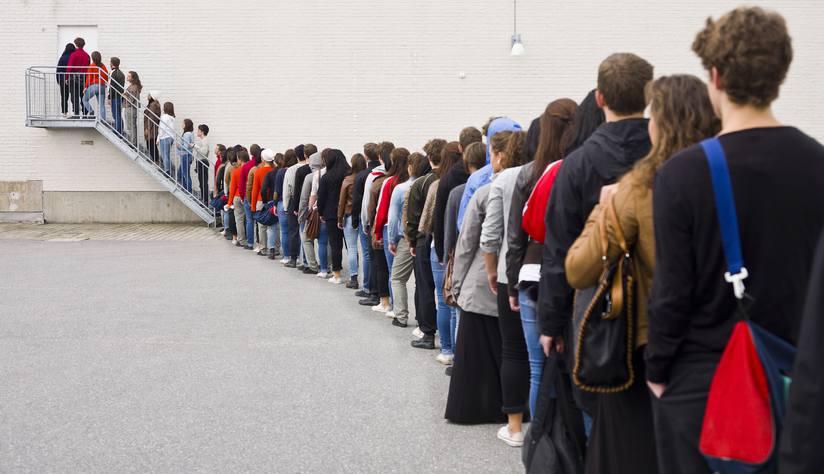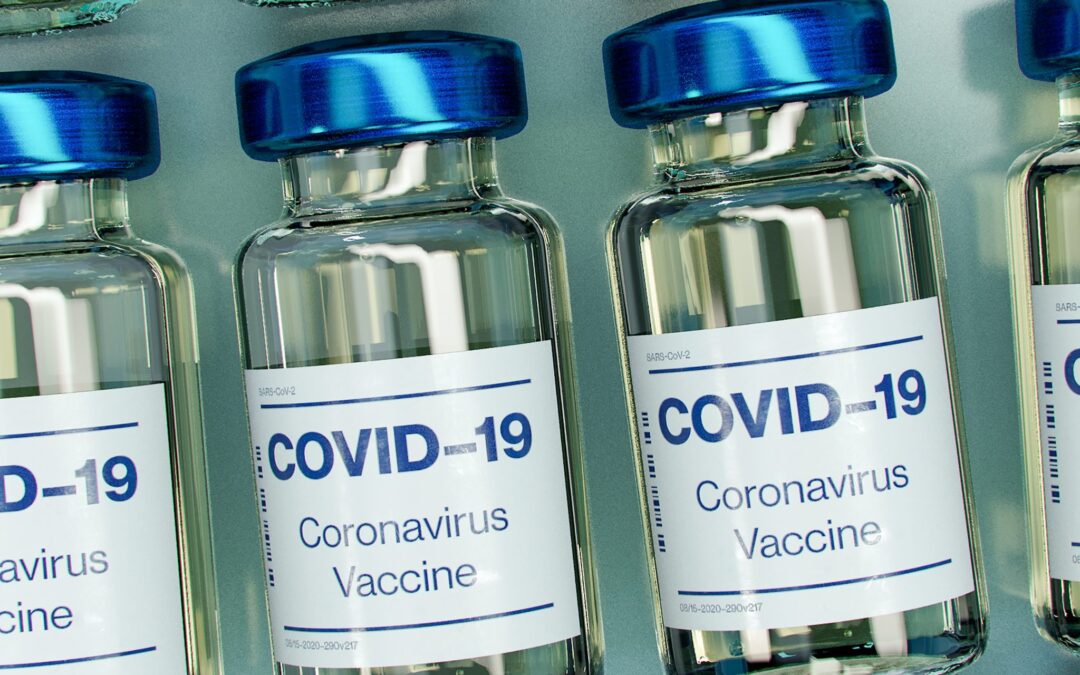After ten long months and counting of living through a pandemic, the recent approval of multiple vaccinations against the COVID-19 virus is offering us a small glimmer of hope at the end of this long, dark road. While we have good reason to be excited about this milestone, due to limited supply it is clear that it will still be some time before the general public has access to the vaccine, and strict measures are being put in place to make sure that prioritization for these vaccines first gets to those who need it most. While most decisions around prioritization are focused on getting the vaccine to frontline healthcare workers and those who are most medically vulnerable, there is one group of high-risk people are being largely left out of the conversation: people with serious mental illness (SMI). Below, we will be looking at why people with SMI are uniquely vulnerable to COVID-19 and why they should receive prioritization for a vaccination.
What makes people with SMI more vulnerable to COVID-19?
People with SMI are at an increased risk of being infected with COVID-19 and have worse health outcomes than the general population, including higher rates of hospitalization, morbidity, and mortality. One major contributor to these poor outcomes is that people with SMI tend to have co-occurring untreated physical health problems, as well as reduced access to medical care. (Jama Network).
People with SMI may have trouble believing or understanding the severity of viruses like COVID-19 and may therefore be less likely to keep themselves safe with preventive measures such as mask-wearing and social distancing. Environmental factors can also play a role in explaining the increased risk for people with SMI; people with SMI are more likely to be exposed to high-risk living conditions such as treatment facilities, hospitals, jails, and for those experiencing homelessness, shelters or the streets.
A recent study has also found that people with substance abuse disorder, particularly those with opioid and tobacco use conditions, are also at an increased risk of both COVID-19 infection and poor health outcomes related to infection.
Vaccine Prioritization

https://www.fromthegrapevine.com/lifestyle/israel-passes-law-allowing-seniors-skip-lines
As of now, people with SMI seem to fall under Phase 1C of California’s vaccination prioritization plan, under the category describing individuals with an “underlying health condition or disability which increases their risk of severe COVID-19.” However, because mental health conditions are often not as obvious or not as easily documented as physical disabilities, it is unclear if the vaccine will truly be made accessible to the SMI population in this phase.
To guide their recommendations for a system of prioritization, the Center for Disease Control has identified the following four ethical principles in their decision-making:
- Maximize benefits and minimize harms — Respect and care for people using the best available data to promote public health and minimize death and severe illness.
- Mitigate health inequities — Reduce health disparities in the burden of COVID-19 disease and death, and make sure everyone has the opportunity to be as healthy as possible.
- Promote justice — Treat affected groups, populations, and communities fairly. Remove unfair, unjust, and avoidable barriers to COVID-19 vaccination.
- Promote transparency — Make a decision that is clear, understandable, and open for review. Allow and seek public participation in the creation and review of the decision processes.
Based on these goals, it is clear that people with SMI should be considered a priority population for vaccination against COVID-19.
People with SMI are more likely to contract COVID-19 and experience poorer health outcomes, including death, and face barriers in accessing the care they need for prevention and treatment. According to a recent article in Behavioral Health Executive, people with SMI should also receive priority for vaccination in order to slow the heavy burden on the behavioral health system, which is quickly becoming overwhelmed in response to the pandemic’s effects on mental health.
Barriers to vaccination for people with SMI
According to recent studies, people with SMI are less likely to access preventive health care, likely due both to misinformation and mistrust of healthcare as well as systemic barriers such as cost, awareness of services, and access to care.
 There are, however, ways to help overcome these barriers.
There are, however, ways to help overcome these barriers.
People will SMI are more willing to adopt preventive measures if they are informed and educated on the benefits of such care by peers or trusted health professionals. Mental health professionals can play an integral role in facilitating this communication and education.
Systemic barriers related to access can and should be addressed with creative solutions tailored to the SMI population. Providing transportation to vaccination clinics, for example, could help reduce the accessibility barrier for some. Another solution may be to embed vaccination clinics within mental health centers in order to remove the transportation barrier entirely. One study found that running vaccination clinics alongside mental health services increased vaccination rates up to 25%.
In order to create a prioritization system that truly considers the most vulnerable in our community, policy-makers must take into consideration the risks, barriers, and needs of people with SMI.
Resources
https://jamanetwork.com/journals/jamapsychiatry/fullarticle/2774106
https://www.hcplive.com/view/prioritizing-people-serious-mental-illness-covid19-vaccination

